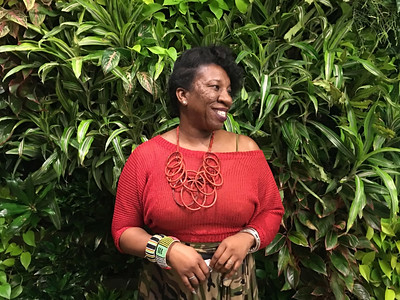by: Safiya Ahmed
A few weeks ago, women around the worlds’ hearts collectively skipped a beat when Hollywood producer—and infamous alleged sexual predator—Harvey Weinstein was spotted at an event for young actors in a bar on New York City’s Lower East Side.
“I didn’t know that we’d have to bring our mace and rape whistles with us,” female comedienne Kelly Bachman improvised, beginning her set by addressing the elephant in the room.

Even more shocking, when a few other young women attending the event approached him, asking how on earth he felt it was appropriate to be at such an event given his upcoming trial for alleged rape and sexual misconduct, they were thrown out. He got to stay.
Almost two years ago, the New York Times broke the story of the famed Hollywood producer’s serial sexual misconduct, bringing the story of dozens of famous actresses to light for the first time in history. The explosive story inspired women from other industries to speak out as well, finally creating a collective voice to put together the disjointed pieces of how powerful men abuse their positions to prey on young women.
For a moment, it seemed as if there might finally be justice and accountability for these men. Bolstered by these stories that were now being shared and amplified by social media, comments like US President Donald Trump’s infamous “grab ‘em by the pussy” remark were not isolated incidents, but part of a larger framework of structural inequality, that was impacting women across sectors.
But the media didn’t treat it that way.
Instead of examining the breadth of stories presented by the #MeToo campaign, journalists obsessed over the sexual misconduct stories of the rich and famous, devoting an inordinate amount of column inches to famous women retrospectively recalling their interactions with famous men. Almost no one noted that #MeToo was first used as a rallying cry by by Tarana Burke, a civil rights activist from the Bronx, to raise awareness about pervasive sexual harassment in her community.
But the endless stream of casting couch stories left out the experiences of ordinary women like the women that Tarana Burke works with—thus failing to build the community that is needed to combat serial sexual harassment across the board. This failure may even be contributing to the numerous comebacks over the past few months; as the Daily Beast reports, many of the denounced men in entertainment from Louis C.K to Woody Allen, Casey Affleck and Roman Polanski have staged come backs simply because they feel that redemption is within their right.
Could the media have stopped this?
If there was an assumption that the #MeToo stories of the rich and famous will have any trickledown impact on ordinary women, it is sorely mistaken. According to a report by the organization Stop Street Harassment, most of the #MeToo headlines focussed on wealthy and/or white women’s experiences, specifically in the workplace. Meanwhile, data shows that the problem is far more pervasive. According to a report by the National Academies of Sciences, sexual harassment in science-focused fields remains pervasive and largely unchanged more than three decades after laws to fight gender discrimination in academic settings. In comparison with stories of Hollywood stars reckoning with predatory men, this got very little media coverage—even though more than 40 percent of medical students have experienced sexual harassment by the both the faculty and staff at their institutions.
It is worth noting that before #MeToo, the narrative was almost the opposite—that is, stories about women’s oppression were largely focused on women of color, women from developing nations and non-western cultures. But when it became clear that more privileged women were also suffering, these stories were cast aside in favor of stories about actresses, some who had given a false impression of Weinstein as a respectable Hollywood producer.
What is more, this focus on the rich and famous robs the movement of its race and class dimensions, further skewing the media in one direction, leaving untold stories at the other end. Has the media forgotten its raison d’être: to check power in all sectors of society so that it can strengthen our democratic systems?
Without amplifying the diversity of the fight against sexual harassment, of course predators like Harvey Weinstein think that they can go back to their old ways. Independent journalists and a critical media are ever more important in ensuring that those afforded the opportunity to speak about abuse use their microphones to speak truth to power in a concerted manner so that #MeToo becomes #WeToo and serial predators are crushed for everyone, once and for all.
Image: Tarana Burke, the founder of the #MeToo movement. Penn State, flickr
Nenad Radoja
Contrary to popular belief, Lorem Ipsum is not simply random text. It has roots in a piece of classical Latin literature from 45 BC, making it over 2000 years old. Richard McClintock, a Latin professor at Hampden-Sydney College in Virginia, looked up one of the more obscure Latin words, consectetur, from a Lorem Ipsum passage, and going through the cites of the word in classical literature, discovered the undoubtable source.